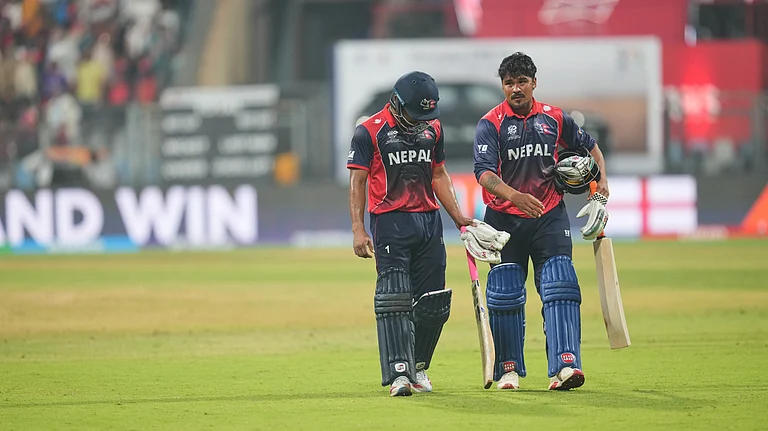For over two years now, India has had the Kasab card, an ace New Delhi regularly thumped on the table to demand that Pakistan take action against the perpetrators of 26/11 and dismantle the terror apparatus on its soil. Islamabad fretted and fumed as western powers, particularly the US, unequivocally endorsed India’s position. And now, in a sudden shuffling of the deck, Pakistan has been dealt what can be called the swami card. The sensational disclosure of Swami Aseemanand on the Samjhauta Express bombing of ’07, in which over 50 Pakistanis were killed, has bolstered Islamabad’s propaganda arsenal, providing it the chance to embarrass New Delhi and counter its clamour for bringing to justice the 26/11 masterminds. The Samjhauta tragedy is on its way to becoming Pakistan’s 26/11.
Within days of the Indian media reporting Swami Aseemanand’s confession that Hindu radicals were involved in the bombing of, among other places, the Samjhauta Express, the Pakistan foreign office summoned acting Indian high commissioner G.V. Srinivas on January 11. He was asked to hand over to Pakistan the findings of the Samjhauta Express investigation. Subsequently, the foreign office issued a statement listing other bombing incidents involving Hindu radicals—from Malegoan to Hyderabad to Ajmer. Since all these incidents were initially blamed on Pakistani terror groups, the implication was that New Delhi had been wrong in accusing Islamabad of fomenting terror in India.
For starters, sources in the foreign office say the Samjhauta Express issue will be raised at the meeting between Pakistan and Indian foreignsecretaries scheduled to be held on the sidelines of the SAARC summit in Thimpu early February. Foreign office spokesman Abdul Basit hoped India wouldn’t squander time to bring to justice those who bombed the Samjhauta Express, considering that nearly all of four years had been spent to achieve the breakthrough.
Taking cue from the foreign office, Ameerul Azeem, central secretary general, Jamaat-e-Islami Pakistan, alleged that the investigation into the Samjhauta case was deliberately slowed down following the carnage in Bombay. As Azeem told Outlook, “The Indians are actually trying to convey to Pakistan that any progress in the Samjhauta case will be conditional to the progress in the Mumbai attacks. This is nothing more than petty politics.” He also accused India of protecting the Sangh parivar despite Swami Aseemanand’s testimony on the involvement of its activists in the bombing.
But Pakistan’s swami card isn’t quite on par with India’s Kasab card. For instance, eminent writer Khaled Ahmed says Pakistan’s attempts to equate the Samjhauta Express bombing with the Mumbai carnage won’t have much purchase. For one, 26/11 was internationalised because of the sheer scale of the attack and the several foreign nationals killed; its perpetrators were Pakistani citizens who belonged to an outfit banned by the UN; and, worse, Pakistan is perceived as a country reeling under the onslaught of militant Islam. In contrast, those involved in the Samjhauta Express bombing don’t belong to a proscribed group or have links to organisations threatening US-led troops in Afghanistan. For all these reasons, says Ahmed, unlike 26/11 the Samjhauta Express bombing will remain a regional issue.Former foreign minister Khurshid Mehmood Kasuri says the two neighbours shouldn’t fall for the rhetoric of those who perceive the travails of one country as a boon for the other. Kasuri wants both foreign secretaries to soften their stance in Thimpu and enhance economic cooperation. This will deepen political relations, says Kasuri. His view has the endorsement of Khaled, who also wants Pakistan and Indian intelligence agencies to meet instead of talking through the jingoistic, brainwashed media. Says Khaled, “Pakistan must stand up to its non-state actors with the help of India and the international community.”





















